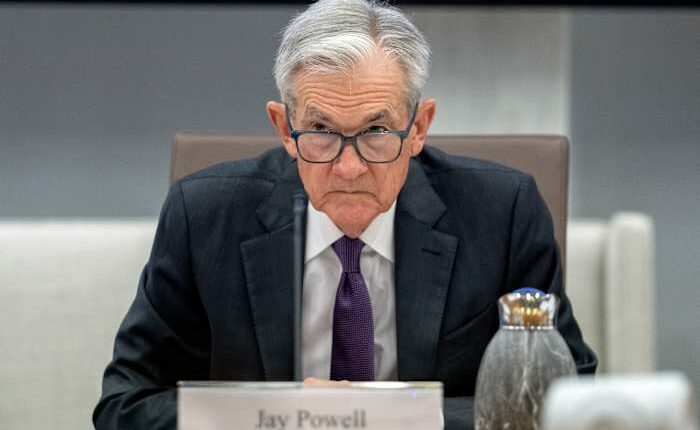Share this @internewscast.com

WASHINGTON – In a letter sent on Thursday, White House budget director Russell Vought accused Federal Reserve Chair Jerome Powell of breaching government building regulations during the refurbishment of the Fed’s headquarters.
Vought shared the letter on social media, describing the renovation plans, which include rooftop gardens, VIP dining areas, and high-quality marble, as an “extravagant makeover.” He also claimed that Powell gave misleading information to Congress by stating the headquarters had not undergone any major renovations, pointing out that updates made between 1999 and 2003 to the roof and building systems should be considered a “thorough” renovation.
This seems to be part of a broader effort by the Trump administration to apply pressure on the Fed chair to resign before his term concludes in May 2026. Powell has refused to lower interest rates until the U.S. central bank fully assesses the potential inflation effects of President Donald Trump’s tariff increases.
Fed officials did not respond to an email seeking a response to the White House letter. Powell said in Senate testimony last month that some of the elements in the 2021 plan such as the dining rooms and rooftop terraces are no longer part of the project for the 90-year-old Marriner S. Eccles Building.
The Supreme Court said in May that it could block any attempts by the White House to dismiss Powell, noting as part of a separate ruling that the Fed “is a uniquely structured, quasi-private entity.”
Trump said at Tuesday’s Cabinet meeting that Powell “should resign immediately” and be replaced by someone who would lower rates, as the U.S. president believes that high inflation is no longer a risk to the U.S. economy.
As Trump sees it, a rate cut would reduce the costs of government borrowing in ways that make mortgages, auto loans and other forms of consumer debt cheaper. But a rate cut could also lead to more money flowing into the economy and push up inflation, worsening affordability as the financial markets ultimately determine the interest charged on the national debt.
In Thursday’s letter, Vought sent Powell a series of questions about whether the renovation project complies with federal standards. Vought said that Powell’s testimony about changes to the 2021 plan “appears to reveal” that the renovation is not in compliance with the National Planning Capital Act.
The Fed sees political independence as an essential value for setting monetary policy, allowing it to act without the interests of elections and focus instead on its dual mandate of stabilizing prices and maximizing employment.
Trump has repeatedly berated Powell on his social media site Truth Social, nicknaming the Fed chair “Too Late.” On June 30, Trump sent Powell a handwritten note saying that his decision to hold rates steady had “cost the USA a fortune” in the form of higher servicing costs on the national debt.
The risk of prematurely lowering rates is that higher inflation could be ignited. The Fed’s preferred measure of inflation, the personal consumption expenditures price index, is at 2.3%, slightly higher than the Fed’s 2% target.
Inflation has fallen after spiking to a four-decade high in June 2022, but the uncertainty on the size and impact of Trump’s tariffs and how they flow through the U.S. economy has caused the Fed to pause after multiple rate cuts last year.
Copyright 2025 The Associated Press. All rights reserved. This material may not be published, broadcast, rewritten or redistributed without permission.










